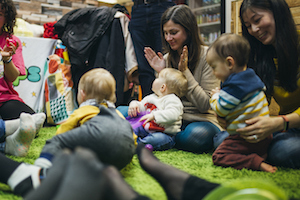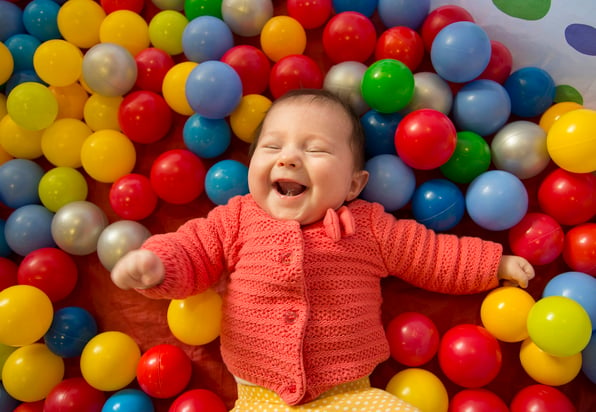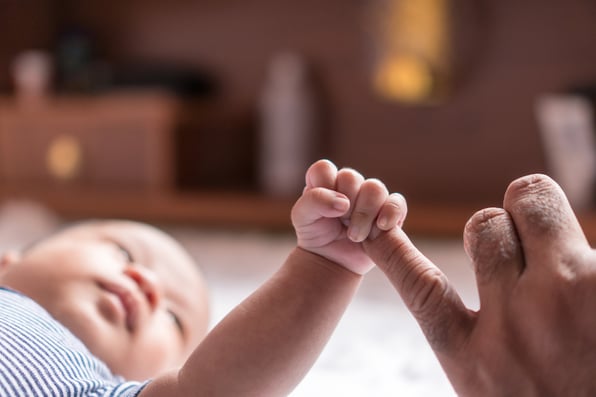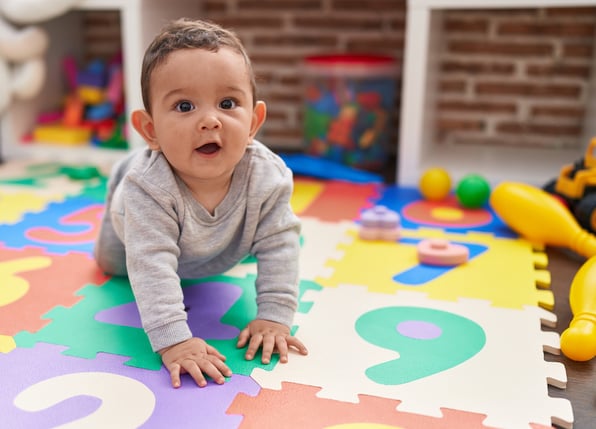 As a parent, you eagerly watch your baby to observe signs of new skills and accomplishments. If you find yourself wondering if your infant is developing at a healthy rate, that’s not unusual. To help, we’ll share five important infant milestones as described by the Centers for Disease Control and Prevention (CDC).
As a parent, you eagerly watch your baby to observe signs of new skills and accomplishments. If you find yourself wondering if your infant is developing at a healthy rate, that’s not unusual. To help, we’ll share five important infant milestones as described by the Centers for Disease Control and Prevention (CDC).
Two Months
At this age, your baby may smile for the first time. This is a special milestone, indeed! Although babies may make similar facial movements before the age of two months, this is usually when the first social smile takes place. As a pediatrician shares with Healthy Children, babies will notice how people smile at them and then they’ll learn how to smile warmly in return to engage with their family members and other loved ones.
Four Months
At this age, babies often start to babble, making those “ba-ba-ba” and “ga-ga-ga” sounds. According to What to Expect, this is an early component of learning language skills. To help with this infant milestone, talk to your baby. This helps them to build receptive skills—meaning to begin to understand what someone else is saying—and expressive ones, which involves saying words. You can also help by repeating what your baby said to you, even if it’s just “da-da-da-da.”
Six Months
At this age, your baby may sit without your help. If that isn’t happening yet, don’t worry. Baby Center points out that many babies don’t reach this infant milestone until seven months of age, often able to sit up for several minutes by the age of eight months. You can help to strengthen your baby’s neck muscles and develop control of the head by placing him or her on the floor, face down, and then shaking a bright toy that makes noise to encourage the infant to look up.
One Year
At this age, don’t be surprised if your baby cries when a parent leaves and acts shy around strangers. As Kids Health points out, as your baby becomes more independent, they may well develop separation anxiety, and this is why your baby may become agitated when you leave the room (and not want attention from someone else!)
Some children develop this later than a year while some never go through this milestone. Still others may start if they switch caregivers, move to a new home, or otherwise experience stress.
Eighteen Months
At this age, your growing child is probably walking without assistance. Some begin to walk around twelve months while others start earlier—or later. Then, they gain proficiency on their own unique timelines. They start by standing with help and then standing solo. This will lead to those cherished first steps and then independent walking. To prepare for this infant milestone, baby proof the areas where your child will be. This includes removing clutter and other tripping hazards; putting away breakables; covering outlets; moving cords; and more. It can help to close off rooms that are especially challenging to baby proof and allow your child more freedom to grow and explore in safe spaces.
When To Be Concerned About Infant Milestones
Infants develop at their own pace. Support your child’s progress by allowing them to take the lead, rather than choosing milestones to look for. Some, for example, may become social earlier, but walk a bit later—or vice versa. If you have concerns about your baby’s development, talk to your pediatrician. You’ll likely go away feeling reassured and, if your child does need extra help, then you can create the right plan.








